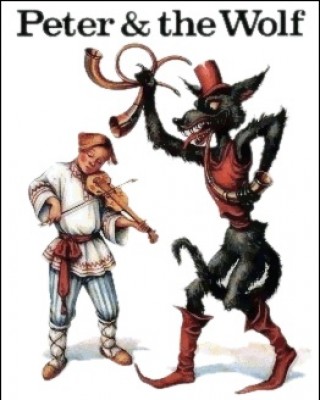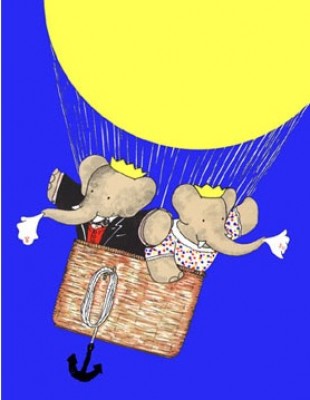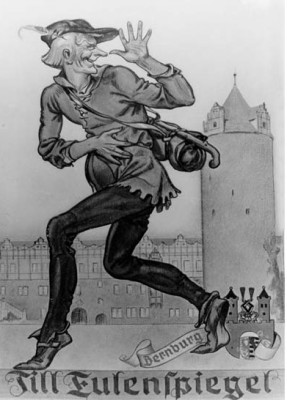New York Philharmonic Entices the Young
Prokovief, Rafael Mostel and Richard Strauss
By: Susan Hall - Dec 14, 2015
Young People's Concert
New York Philharmonic
David Geffen Hall
Joshua Gerson, Conductor
Theodore Wiprud, Writer and Host
Brandon Gill, Narrator
New York, New York
December 12, 2015
You would never know that symphony orchestras had problems reaching a younger audience. Geffen Hall in New York was packed with young people eager to listen and offer opinions on characters, stories and their expression in music. Theodore Wiprud, the NY Phil's Vice President for Education, was master of ceremonies. "Once upon a time" was the theme.
A painted lawn with neighboring forest hung over the orchestra as they performed the delightful Peter and the Wolf by Prokofiev. Wiprud introduced the characters: the flute (bird), clarinet (cat), oboe (an ill-fated duck) and bassoon (grandfather). Strings are Peter and the wolf, french horns.
Would we be able to understand the story without a story teller? Perhaps yes, but Brandon Gill stepped forward to narrate as the Philharmonic performed and he was superb. His suspenseful delivery kept the audience on the edge of their seats as the wicked French horns threatened.
Q&A with the audience kept them alert and attentive. Instruments and instrumentalists were a draw. One young boy was so eager to participate that he found his way up to the stage with the musicians. He was gently returned to his seat.
Contemporary composer Rafael Mostel has recently completed an orchestral version of his Travels of Babar. The orchestra played five elections from Part One: The Honeymoon. Mostel's music was lofted as the balloon rose carrying Babar and Celeste away. You could hear Arthur and Zephyr wave goodbye below. The piece offers lessons in scales, canons and fugues. Eager ears delighted in the music on which the elephants' balloon basket floated.
The children sensed that Till Eulenspeigel is magic music, even if they can't name the pieces that fall together: color, content and technique. Strauss’ composition deliciously captures the accents of Eulenspiegel’s foolishness, mischief, courage, and scorn.
The composer’s choice of the rondo form is perfect for a picaresque demi-novel, which contains many minor climaxes and unconnected episodes, but no main climax or plot. The scampering twists and turns of the music charmingly mimic the storyteller's light and informal style. The audience picked up the playfulness and impishness of the music.
Listening to music as it tells stories and draws pictures is a special pleasure. Many symphony orchestras follow this path to attract audiences, young and old. Contemporary composers like Mostel write notes to tell a story, so it is a happy union of the composer's intent and the audiences' desire.
This program was a perfect introduction to a lifetime of listening. And never underestimate the pure pleasure the New York Philharmonic instrumentalists provide under the baton of Joshua Gerson.



